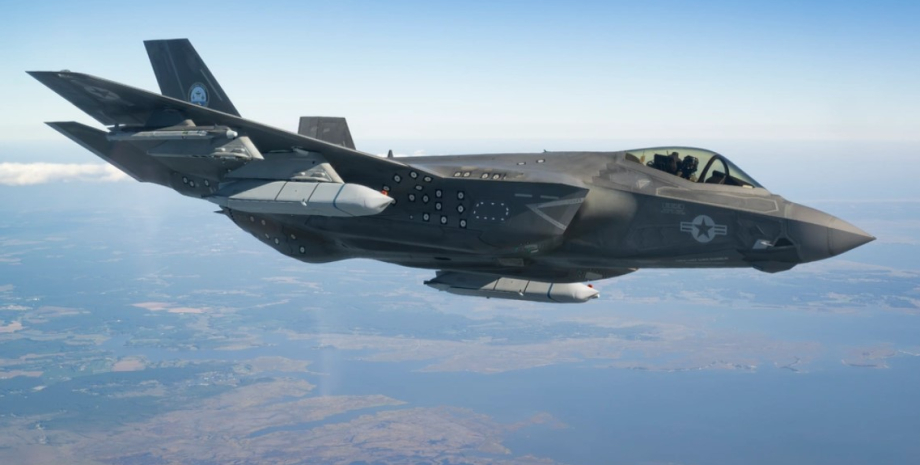
This inconspicuous anti-ship weapons designed on the basis of AGM-158 Joint Air-To-Surface Standoff Missile (Jassm) rocket will significantly increase the F-35 combat capabilities, which is especially important in the context of potential conflict in the Pacific. This was reported on September 24 by The War Zone. The photo shows the test flight, which took place on September 10, on the basis of Nas Patuxent River in Maryland.
A pair of LRASM missiles was installed on the external sub-pilots of the F-35C aircraft, which is part of the combined test forces in Pax River. It is noted that these trials have become an important step towards the integration of LRASM with the F-35. AGM-158C LRASM is developed as a long-term solution to eliminate offensive deficiency.
The rocket is equipped with an inertial navigation system (INS) with GPS navigation and adaptive routing system, which enables it to effectively bypass air defense systems and strike marine goals with high accuracy. In the final phase of the flight, the rocket uses an infrared seeker with the formation of the image to accurately poin the most vulnerable parts of the enemy ship.
Although the external location of LRASM reduces the inconsistency of the F-35, it is offset by the range and accuracy of the target. In the near future, the integration of LRASM is planned with other versions of the F-35, such as F-35b with short take-off and vertical landing, which will expand the US Navy in different combat conditions.
The LRASM integration with the F-35 reflects the pentagon's desire to strengthen the anti-ship capabilities of aviation against the background of increasing tension in the Indo-Pacific. The development of new types of weapons, such as Halo hypersonic rocket, also indicates that the United States is preparing for possible conflicts in the region and betting on modern systems that can withstand threats at sea. Earlier, we wrote about threats to F-22 and F-35 fighters from the Russian SCRC C-500.










All rights reserved IN-Ukraine.info - 2022